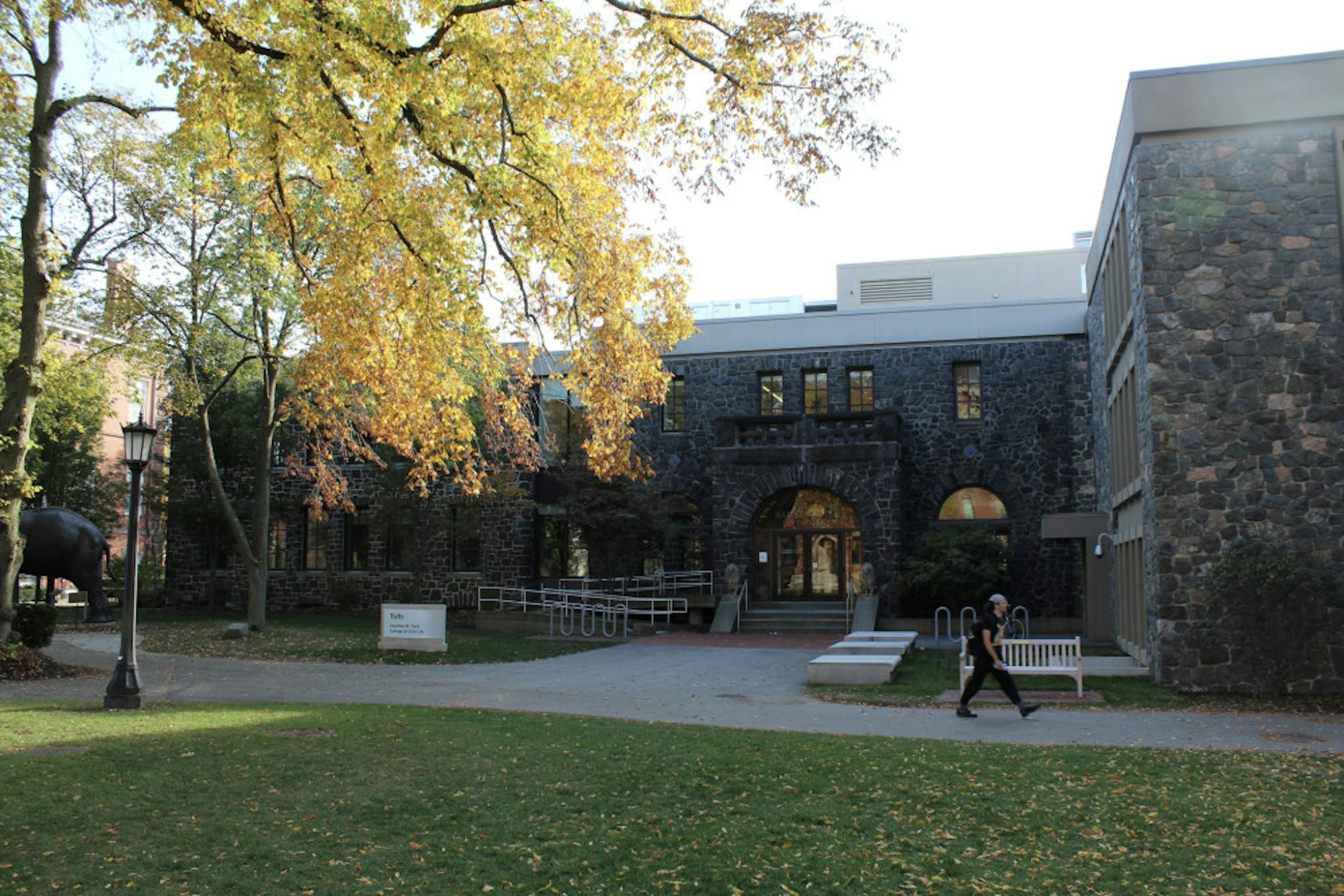Tisch College’s final Civic Life Lunch welcomed artist, activist and Tufts alum Scheherazade Tillet (LA’00) on April 6 to speak about her work and goals. Alonso Nichols, Tufts’ chief of photography, moderated the conversation.
Tillet is the co-founder of A Long Walk Home, a national art organization whose work empowers young leaders striving for gender equity and racial justice. Tillet started her career at Tufts with her senior project, “Story of a Rape Survivor,” which documented her sister’s healing process as a rape survivor.
Nichols opened the conversation by asking about art’s ability to effect change. Tillet spoke about the collaborative aspect of her art and photography.
“It could have been just photography on the walls, but I felt like it needed to be interjected with different mediums,” Tillet said. “I think the next element is the audience … so creating a space of community healing with that.”
Tillet then spoke about exchanges between street photographers and their human subjects, drawing context from her recent trip to Congo Square in New Orleans.
“I brought my polaroid because I was really interested in the exchange of [photos], especially when you do street photography, giving them something is really important,” Tillet said. “I always say the image that you don’t want, that someone doesn’t want to take, I’m not really interested in that. It’s so much about an exchange. So I guess using it as a tool to get closer to people to conversate [and] to learn. … Talking to other photographers, sometimes the image is the last thing.”
Tillet also shared how collaboration comes into play in the institutions where she shows her work, mentioning her piece “The Black Girlhood Altar” which honors missing and murdered Black girls.
“We wanted to make sure that we had a full connection to the family,” Tillet said. “Then for the opening, we brought the families all together. We flew people into the opening and then … advocated for [their] membership for the museum.”
The families were also able to bless the space where the exhibit takes place.
An audience member asked Tillet about how she copes with the incredibly heavy subject matter she works with on a daily basis. In addition to her work with art focusing on sexual assault and racism, Tillet has worked as an art therapist at a rape crisis center.
“I think that even when I do work around sexual assault, it is that, but it isn’t that,” Tillet said. “As artists, we find beauty. I found beauty in my sister’s healing versus the actual assault itself. To heal from sexual assault is so remarkable. And the courage you have to do, I saw that. I saw the beauty of that, which is a hard thing to see beauty in. … You can’t do this work alone. And again, I go back to the community.”
Tillet also spoke about how she incorporates play into her work. She worked with young girls who double dutched — a jump roping game — in front of a former police officer who killed Rekia Boyd in 2012. The girls were able to “reclaim the space where she was killed,” Tillet remarked.
Tillet again collaborated directly with the community with her piece entitled “Will You Be My Monument.” Tillet watched and photographed a statue of Christopher Columbus being removed from Newark, N.J.
“I saw this young girl, Fatima,” Tillet said. “She was celebrating her eighth birthday. … I was like, ‘Will you be my monument?’ And I asked to photograph her in front of the empty pedestal.”
The photograph and the question that Tillet asked Fatima are now a mirrored mural on an “abandoned but yet not abandoned” street. Tillet said that “the idea is that you see yourself as the monument.”
Another audience member asked Tillet about what other “good trouble” she wanted to see artist activists get into.
“Reproductive justice is [something] everyone needs to be involved in and advocate for,” Tillet said. “I say girls are at the center of our village. We constantly go to them for things, and what does it really mean to empower girls?”
Tillet then spoke more about enacting change.
“Use what you have to make those changes,” Tillet said. “I used photography, but everyone has something. … Our young people are so ready.”






